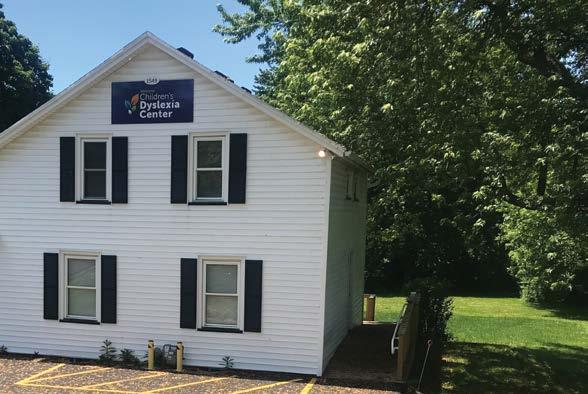
4 minute read
Reopening the Rochester Center
REOPENING THE ROCHESTER CENTER Back from the Brink by Jocelyn K. Wallace, Grant Writer and Scot tish Rite Charities Coordinator
When years of financial hardship forced the leaders to close the Children’s Dyslexia Center of Rochester, New York, in March of 2017, parents and staff members were at a complete loss. For Ann Kaczka, Director of the Center, the decision to close seemed incomprehensible. “It just didn’t feel real. It was a very numbing experience,” she said.
In a final push to save the Center, Brother Robert F. Ogg, 33°, then Director of Operations, and Center Director Kaczka called for a meeting with over a dozen parents of alumni. Brother Ogg explained that for the Center to remain open they would need to establish a board that night. They immediately set about assigning officers and developing a new fundraising plan.
What they lacked in initial experience, they made up for in enthusiasm as they set into motion several new fundraising initiatives— the first being a bourbon tasting at a local distillery. “We decided to start out a little bit small,” Chairwoman Brenda Goodfriend said of the event. “It was pretty successful. We actually had too many people in the building. They had to put some people outside and into their warehouse area for the tours, so they wouldn’t break code violations.”
Around the time the board was forming, parents Thomas “Tom” and Missy Gangemi were desperately searching for a program that could help their daughter who had been recently diagnosed with dyslexia. After hearing of the Rochester Center, they were eager to enroll as soon as possible. Unfortunately, after meeting with Center Director Kaczka, those hopes were quickly dashed.
“She said they were actually closing due to a lack of funding and that they weren’t accepting any other applications. I guess this was something she had been saying routinely, and that was just kind of… you know…that was the end of that,” Mr. Gangemi said.
Though the Center had a new board and plan for fundraising, none of that would have been enough to cover the cost of the Center’s rent which at the time was nearly $36,000 per year. When Mr. Gangemi learned of this from a tutor, he knew he could help, since he works in real estate.
“So, I called [the Center] and said, ‘Hey, if you’re in need of space, I can give you something.’”
After looking into about a half dozen potential sites, Mr. Gangemi eventually found a home in a residential area just outside Rochester that, with some renovations, would match the Center’s needs perfectly. He asked Kaczka and Chairwoman Goodfriend to meet him there to get their thoughts.
“He said ‘If you like it, I’ll buy it!’” Goodfriend said.
A number of renovations had to be completed before the Center could move, including taking out the kitchen, installing new dry wall, putting in wheelchair accessible bathrooms and ramps, new parking, and much more. When renovations were finished in late August, there was only one more major hurdle: they would have to acquire a zoning permit.
First on the docket before the local zoning board, Mr. Gangemi and members of the Rochester board made their case.
Chairwoman Goodfriend, who was at the meeting, said, “Tom was very nervous about it because he had purchased the building and made all the improvements on it, and now he
needed to get the permit for us to utilize it. He had a lot riding on it, as well as us.”
Their nervousness grew with each passing question. It seemed that the members of the zoning board were still reluctant to grant the permit. That changed when one member asked how the Center could afford to provide its services for free. Mr. Gangemi explained that by offering the house for free, the Center would be able to continue serving and changing the lives of children for free almost indefinitely, despite having nearly closed. When he was finished, those in attendance stood and began applauding.
“It was just kind of a perfect, feel good moment,” said Goodfriend.
They received the permit.
Today, the Children’s Dyslexia Center of Rochester is alive and well with 22 children and six trainees currently enrolled in the 2020-2021 academic year. And, although the recent COVID-19 outbreak has forced lessons online and impacted fundraising, it is seen as just one more obstacle for a Center that has come back from the brink.
Of his hopes for the new building and the future of the Rochester Center, Mr. Gangemi emphasized the need to inform and train more educators in Orton-Gillingham based teaching methods. In these ways, he says that more children like his daughter will have the opportunity to reach their full potential.








